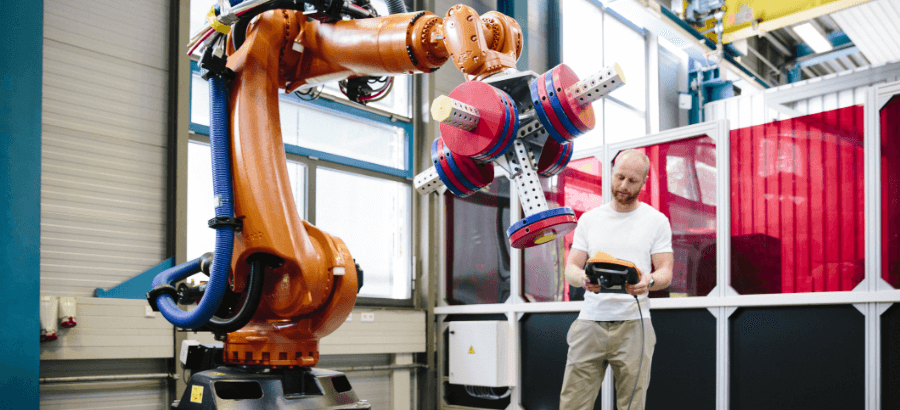The talent landscape for channel partners in the ERP space has become fiercely competitive in recent years. The high pace of digital transformation has accelerated this and the demand for specialized skillsets grows greater every day. The modern digital workplace calls for a variety of skills including cloud infrastructure, cybersecurity, integration, business intelligence and analytics.
In the drive to digital transformation, manufacturers are relying more and more on digital solutions such as ERP to increase visibility and transparency across the supply chain. A greater dependency on these solutions means that companies are going to need to ensure they have the right talent and skills to run, maintain and expand these capabilities. Similarly, the companies implementing these solutions need to ensure that they are able to source and retain skilled resources themselves.
This need for skills is in no way helped by the global tech skills shortage. As the World Economic Forum (WEF) notes in its Future Focus 2025 report, reskilling and upskilling initiatives have not kept up with the pace of digital transformation. In fact, WEF’s The Future of Jobs Report 2020 found that half of all employees will need reskilling by 2025, while 40% of today’s workforce are expected to change their core skills in the next five years.
A multi-stakeholder approach
With all this mind, the need for subject matter experts within the channel landscape is paramount and is not the responsibility of one party. It requires a multi-stakeholder approach to ensure today’s ERP channel professionals – as well as future specialists – have the skills to meet the needs of manufacturing industry customers. It is through these experts that customers ensure that they choose and deploy the right platform for their business with sufficient assurance for the future. We live in an age where there are many solutions available – some broad, some specialized – and it’s through the expert guidance of channel partners that customers can make the best decision and ensure their platform achieves the desired business outcome. This is where knowledge, skills and experience are invaluable to customers.
Reskill, upskill and train
Our latest research has found that companies have for the most part not invested adequately in training and development, much to their own detriment. In fact, 61% of manufacturers and distributors said they had no intention of building long term skills training programs and yet there is significant room for skills development. Upskilling and retraining existing employees is crucial for businesses to compete in today’s digital-first world.
The skillsets needed have shifted from primary functional ERP skills to a variety of ancillary skills that have become increasingly important in a modern IT landscape that is built with the future in mind. Many channel partners have historically invested in skills for a single technology or perhaps a limited set of solutions, and are now finding the need to upskill and cross-skill and potentially add new resources to their teams in order to be able to fully service their customers.
Core ERP skills remain critical
That said, the requirement for core ERP skills has not diminished at all, with channel partners needing to hire additional resources for their implementation and support teams, and skill them up as quickly as possible. An easy win is to make use of materials and resources that are made available for skills development by ERP vendors for their channel partners. For new channel partners, having a robust onboarding experience available from the vendor is crucial to get up and running quickly as possible. This is where initiatives like Partner Portals and education platforms are invaluable in giving partners access to the right resources.
Channel partners service and deliver ERP solutions to the end customer, therefore an experienced team of professionals to guide and support them every step of the way is vital.
Plan ahead
According to The Workforce Institute, 87% of manufacturers are having difficulty hiring people for critical roles. It’s this kind of trend that demonstrates the power of succession planning. It’s the investment made in the workforce today that will lead to greater opportunities in the future. According to the Association for Talent Development, 57% of businesses with no succession planning process noted a lack of resources, while more than half (51%) found their workforce lacked knowledge and skills.
ERP channel partners operate in a specialized environment that comes with a unique set of skills and experience that can only be gained over time. Companies cannot be naïve to think that these professionals will not consider pursuing new opportunities or exiting their field entirely one day for whatever reason. This is also not to say that a business needs to start planning every senior employee’s exit, but if there is the space for entry- to mid-level talent to learn from senior leadership, then businesses will be doing themselves a favor for the future by prioritizing on-the-job mentorship and skills transfer.
It is this approach that takes upskilling and training one step further. With the right guidance and mentorship, up-and-coming ERP channel talent have a real shot at becoming the professionals who companies will need to fulfil their business goals in the future. It’s this forward thinking that will take manufacturing companies to new heights.
The industry cannot underestimate the power of having key tech skills to unlock innovation and explore the full potential of emerging technologies like AI, cloud, data, and analytics. It’s only through the right training development programs, human resource planning and the buy-in of all stakeholders that we’ll be able to address the needs of channel talent.







